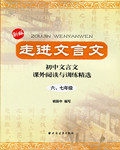题目内容
假如你是学生会主席李华,为了增进学生之间的交流,学生会决定在网络上建立中外学生英文交流论坛,请你根据下面的要点提示介绍此论坛。
目的 | 要点 | 细节 |
提供交流平台 | 加强交流 | 结识朋友…… |
提供帮助 | 学习、生活…… | |
献计献策 | 学校发展、校园生活…… |
注意:1.词数100左右。开头已为你写好,不计入总词数。
2.可以适当增加细节,以使行文连贯。
Students’ Union has decided to set up Study BBS of our own. All of us will benefit a lot from it. It offers us chances to communicate with each other. We can exchange our learning and life experiences on it. We can share different cultures as well. What’s more, it’s a good place for us to make good friends. A life without a friend is a life without sunshine. Anyone who has difficulties with their studies and daily life can ask for help on it. If you have any good suggestions to offer , you can lend a helping hand. Good advice on how to enrich our school life and how to develop our school is also welcome. Wish you to join in and fully express your ideas.
【解析】这是一篇材料作文,文章结构已经大致给出,要求我们分别描述出论坛的目的、要点以及细节,注意用词精准。大致内容已经给出,要适当增加细节内容,保持文章结构完整,内容连贯。文章一句Students’ Union has decided to set up Study BBS of our own.All of us will benefit a lot from it开门见山,提出文章背景为学生会论坛,并简洁明了地阐述了论坛对每个人都有好处;第二句It offers us chances to communicate with each other此处使用了动词不定式作chance的后置定语,增加了可读性;第三句We can exchange our learning and life experiences on it;第四句We can share different cultures as well使用了短语as well与前面相接,继续表明论坛的好处;第五句What’s more, it’s a good place for us to make good friends.使用了短语what’s more表示而且,有着承上启下的作用,动词不定式作后置定语;第六句A life without a friend is a life without sunshine.此句是对上一句话的解释,使用了谚语,给文章增添了色彩;第七句Anyone who has difficulties with their studies and daily life can ask for help on it本句使用了定语从句,提高了文章的水平;第八句If you have any good suggestions to offer , you can lend a helping hand使用了条件状语从句。第九句Good advice on how to enrich our school life and how to develop our school is also welcome.此句也是文章亮点之一,使用了并列的疑问词+动词不定式的形式后置定语,增加了句子的复杂度,并列也显出了文章的气势;最后一句Wish you to join in and fully express your ideas.使用了祈使句。在词语的运用上,也十分出彩,使用了很多精彩短语set up表示建立,创立;benefit a lot from……表示获益匪浅;communicate with……与某人交流;as well表示也;have difficulties with……表示做某事有困难;daily life日常生活;ask for表示寻求帮助;suggestion on表示在某方面的建议;join in表示加入等等。这些短语的使用提升了文章的档次,读起来也津津有味。
考点:考查材料作文写作。

 走进文言文系列答案
走进文言文系列答案